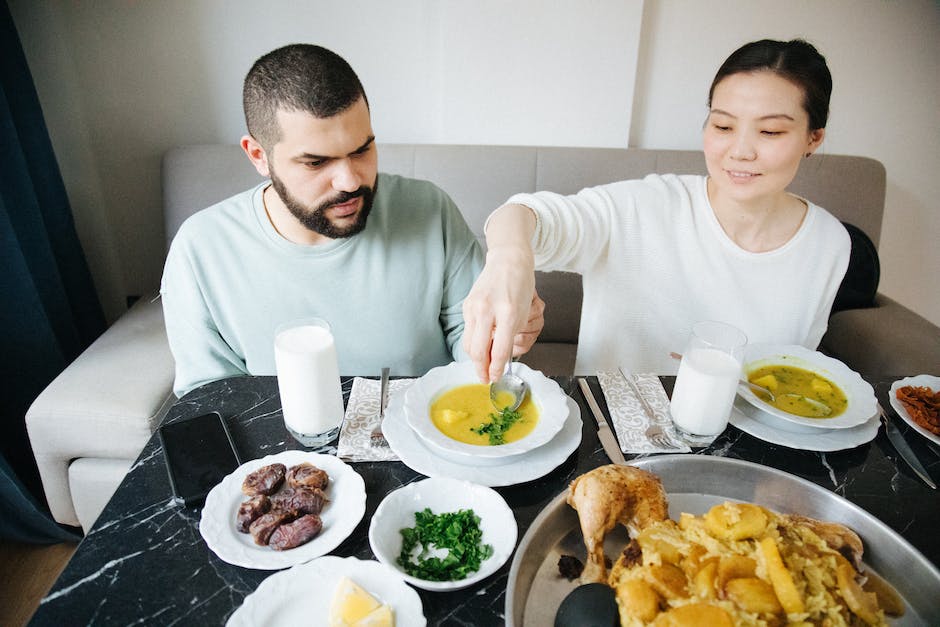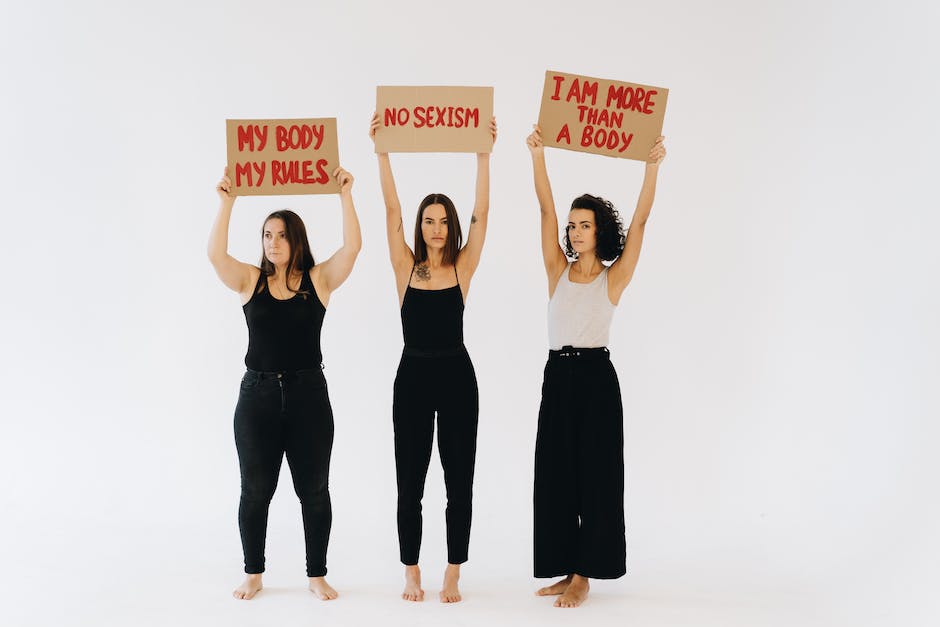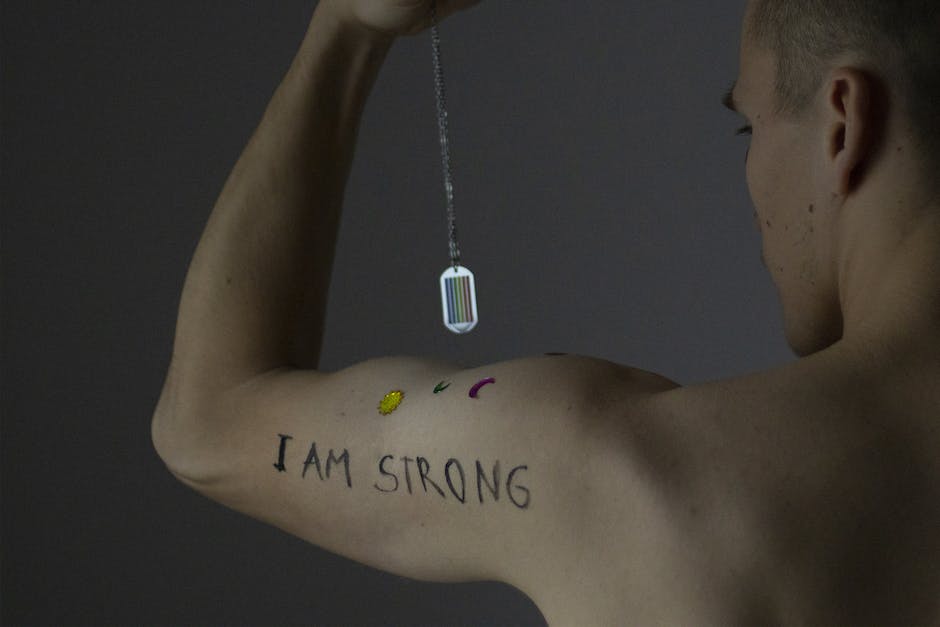If you are feeling stressed or guilty about your weight, it is important to be aware of what may be starting to shift. It can be difficult to tell whether these feelings will slowly fade away or get worse, but here are some initial symptoms that could indicate something more serious.
It is very common to feel unhappy with yourself and your body due to size fluctuation. This can make you feel depressed and self-conscious which can lead to eating more than normal.
Thinning hairs are also a sign of stress when men go through dieting and nutritional changes. Check for any hair thinning in the front area of your scalp as this can be caused by poor nutrition or lack of growth.
Ask your partner or a friend about your eating habits

If you are concerned about whether you have an eating disorder, then asking someone close to you is important. A person who knows you well can watch for changes in how you interact with food, as well as any alterations to your appearance.
They may also notice differences in what foods you like and don’t like, and if you seem to enjoy cleaning your house by buying lots of new things.
It’s normal to feel nervous when you’re around food, but if they see that you start avoiding people because you think they will make fun of you or suggest ways to improve your diet, that’s a sign something might be wrong.
In addition to these signs, if your friends begin commenting on your weight or suggesting diets, that could be concerning too.
Watch your eating patterns

A lot of people develop eating disorders at some point in their life, but for most people it happens suddenly. When you think about it, there are several warning signs that indicate someone may be developing an eating disorder.
People with eating disorders will often notice changes in how they eat. They might start requiring larger amounts of food or no foods at all.
They can become preoccupied with their weight and try to track what makes up their weight. For example, people with body image issues may measure every piece of clothing they put on by the number of pounds it contains.
Alternatively, they may spend hours trying to determine whether they’re hungry or not so that they don’t eat anything. Or, they may go days without eating because they didn’t believe they were still hungry.
It is important to note though that everyone feels hunger differently. Some people need more food than others, and some have trouble going through normal fasting periods. There is nothing wrong with feeling uncomfortable about your own personal hunger levels.
Also, remember that age-appropriate nervousness is okay, but when nerves turn into anxiety then something is off. So, if you’re worried about your appetite, ask yourself why you are concerned and if this is really necessary. – Nourishme.com
Writing down thoughts and feelings can help you identify potential risk factors. If you are aware of any underlying mental health conditions, get treatment immediately.
Keep a food diary

A food diary is a very helpful way to identify potential warning signs of eating disorders. By tracking what you eat and how much you eat, you can determine whether or not your habits have changed.
Tracking your meals for one week will help you discover if there are any trends that seem out of place. For example, if you normally eat two snacks every day but you only have one this week, it may be because you’re trying to make up for the other one by taking fewer lunch breaks.
You could also notice that you’ve become more selective about the types of foods you like,or that you’re limiting yourself to just a few foods. If these things feel uncomfortable to you, then chances are you’re developing an eating disorder.
Talk to your doctor

If you are experiencing mood changes, stressors that seem out of place, or significant weight loss beyond what you would normally lose due to health conditions or medication use, it is important to see a doctor.
Eating disorders often go unnoticed because people who have them don’t talk about them. But they can be identified by some symptoms including:
Changes in eating habits
Becoming preoccupied with food and nutrition
Obsessive exercise behaviors (such as doing hundreds of thousands of crunches every day)
Troubling thoughts about body image and shape
Increased worries about not having enough money for food
If you notice any of these symptoms, speak with your doctor about whether you are developing an illness.
Your doctor will do a physical examination, ask you questions about your lifestyle, and perform tests to determine if there are nutritional deficiencies, mental health issues such as depression or anxiety, or other medical problems that could be causing your weight loss.
Consider seeing a therapist
If you are feeling uncomfortable around food, then it is important to be aware that this could indicate you are developing an eating disorder. While most people enjoy cooking and baking, there is a difference between having fun in the kitchen and being hungry for food!
Becoming obsessed with dieting and exercise is not normal behavior. If your behaviors seem excessive or out of control, then you should consider seeking help. There are many great therapists who can help you work through any underlying mental health conditions as well as nutritional issues.
It is very common to feel depressed when you suffer from an eating disorder. Finding the right counselor can make overcoming depression easier.
Some symptoms of anorexia include mood changes, irritability, self-harm (like cutting yourself), acting like everything is fine even though someone may know something is off about how you interact with others and what you were doing before they saw you.
People with bulimia often eat too much, then go into a fitful sleep overnight to try and burn off the food they ate. This continues until morning when they realize they do not have enough time to fully process the food they just consumed.
Always try to eat until you are full

One of the first signs that your eating habits have become abnormal is when you start limiting yourself to only so much food. You may notice that even though you feel hungry, you just don’t seem to want as much food as you usually do.
Another sign is when you begin thinking about how little food you have left or how many calories you have consumed today and then making excuses as to why there isn’t enough food for you.
You might also find that you’re going through lots of steps to make sure you aren’t wasting any leftover food which means you’re spending extra time in preparation and cleaning up after you eat which shows how important nutrition is to you. All of these can be symptoms of someone who has an eating disorder.
Avoid eating too much

A few other symptoms of compulsive overeating include excessive talking about your food habits, going into large amounts of food, and having increasingly larger portions.
You may also notice that you are not paying attention to what you eat, or whether you like what you ate. If this sounds familiar, it is important to recognize that these things can easily be attributed to someone who is obsessed with weight loss.
Some people develop eating disorders at younger ages due to genetic factors or poor body image. It becomes more prevalent as we age because life can get a little harder as we grow older and finding acceptance in your self-image takes work.
In fact, according to the National Association for Weight Loss Services and Programs (NAFLSIP), one third of all individuals seeking help for obesity have reported developing an eating disorder.
Focus on your exercise

It is important to recognize that not every person who exercises is doing it for eating healthfully or weight loss purposes. Some people simply like to workout, and this can be a red flag if you notice they are obsessed with their fitness routine.
People develop habits and routines as part of their lifestyle, so why should working out be any different? Before assuming something isn’t healthy, do some research!
It’s also important to remember that people often say things about themselves that don’t tell the whole truth. For example, someone could talk about how much they love food but at the same time they might be obsessing over their shape and buying expensive clothing sizes that are close to yours.
Lastly, make sure to look into whether there have been reports of anyone else having symptoms of anorexia or bulimia while using the product.


